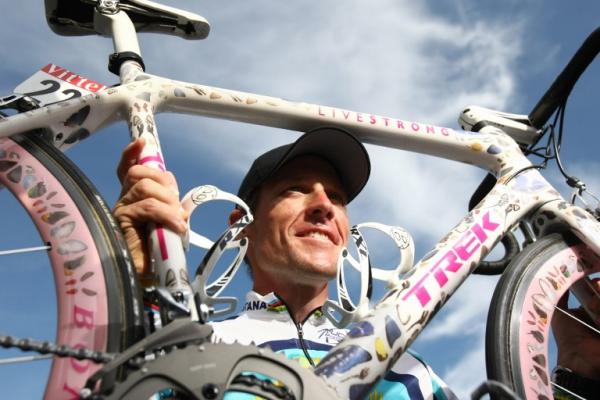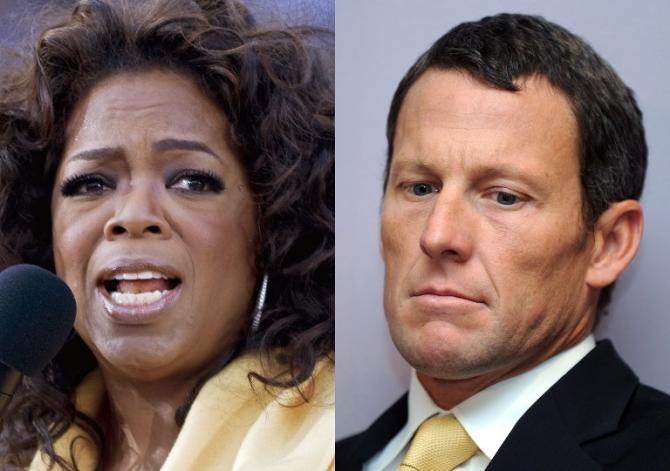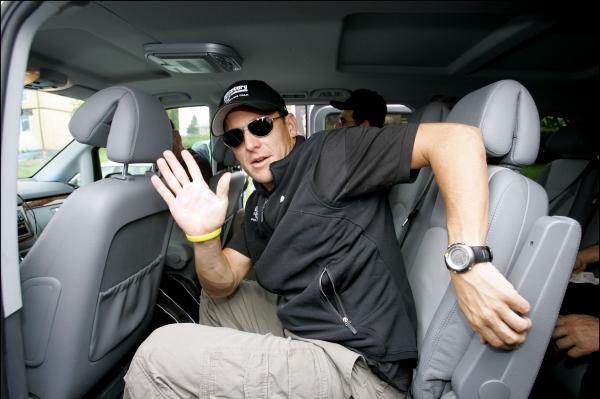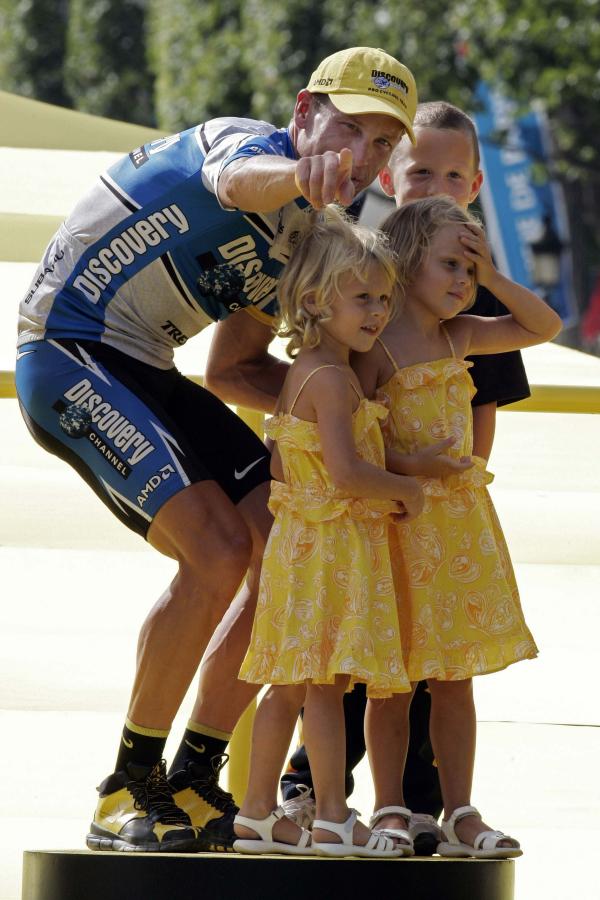Can Armstrong restore his image?
Oprah interview may be too little, too late




As the sports world eagerly anticipates tonight’s interview with Lance Armstrong by Oprah Winfrey, there is much speculation as to why the American has decided to finally come forward after he has already been stripped of his seven Tour de France titles and his Olympic medal, after he has lost his personal sponsorships and resigned as chairman of his eponymous cancer foundation.
Betsy Andreu: No longer a voice in the wilderness
Armstrong set for tell-all interview with Oprah Winfrey
Report: Armstrong confesses to doping during Winfrey interview
UCI reacts to reports that Armstrong could testify against officials
Armstrong interview extended to two nights on Oprah Winfrey Network
Anti-Doping agencies refuse to join UCI Independent Commission
U.S. government rejects Armstrong's $5 million offer in whistleblower case
Follow the Lance Armstrong interview with Oprah live on Cyclingnews
When he admits to cheating in order to win, Armstrong is taking a very big risk: the federal government is reportedly considering joining in on a very large whistleblower lawsuit in which Armstrong is one of several defendants. SCA Promotions and the Sunday Times have already stated their intent to recoup settlements they made to Armstrong when he argued against their assertions that he had doped. So why come forward now?
A report in the Wall Street Journal detailed a December meeting between Armstrong and the same US Anti-Doping Agency that succeeded in exposing him as a fraud. Reportedly Armstrong went in seeking a “path to redemption”, but when he was told that his confession was only worth a reduction to an eight-year ban, Armstrong “hurled a profanity and walked out”.
Stripped of any possibility to compete in anything but unsanctioned events, Armstrong is now left with only one choice, and that is to attempt to restore his reputation enough that he can have any sort of a career, because after being portrayed as a vindictive cheater and manipulator in the mainstream media, not even long-time sponsors Nike and Oakley wanted him associated with their brands.
His adamant denials in the face of overwhelming evidence, and the tactics of his attorneys in challenging USADA’s authority more closely mirror he strategies of baseball legend Pete Rose than the so-called “master of disaster” Mark Fabiani, who was supposed to be in charge of handling his affairs.
Rose, if you recall, employed a similar tactic when confronted with evidence that he had been placing bets for and against his Cincinnati Reds baseball team while acting as a manager. He refused to meet with the baseball commissioner, even going so far as to having a judge issue a temporary restraining order and asking that the case be moved to federal court (sound familiar?).
It wasn’t until 15 years later that Rose finally came clean about his gambling addiction, but by that point he’d already been banned for life from the sport and made ineligible for the hall of fame, despite his stellar career as a player.
The latest race content, interviews, features, reviews and expert buying guides, direct to your inbox!
That kind of move is something that Fabiani, who co-authored a book entitled “Masters of Disaster: the Ten Commandments of Damage Control”, would urge a client to avoid. Yet, it is exactly what Armstrong’s team has done since 2010, when Floyd Landis first came forward saying that the US Postal team had organized doping.
Fabiani was one of the masterminds behind the Bill Clinton administration’s handling of his various crises, and so successfully steered public opinion that Clinton exited as one of the most admired presidents in US history, despite his being impeached for an affair with an intern.
Fabiani’s 10 commandments espouse immediate full disclosure when faced with a scandal, being honest and forthright and not reacting rashly.
But according to the WSJ, Armstrong’s lawyers were against any admissions. Other reports indicate that it was pressure from wealthy supporters of Livestrong who finally pushed him to come clean.
Whatever the reasons, the damage to Armstrong’s reputation is already so severe it may be irreversible. Those who he reviled and threatened to destroy - Betsy Andreu, Emma O’Reilly, Greg LeMond, David Walsh – have all been given a sympathetic treatment in the media and painted as heroes in this story.
It is likely Armstrong will try to take a page from the playbook of his fellow teammates like Jonathan Vaughters, Christian Vande Velde, David Zabriskie, Tom Danielson, Levi Leipheimer or others like David Millar, all of whom have confessed to doping but stated they felt it was the only way to have a career – it was cheat or be cheated.
Those riders were easily the masters of their own disasters, garnering the sympathy of all but the most-jaded cycling fans, and lauded for their honesty and assistance to the anti-doping authorities.
It is Armstrong’s refusal to cooperate that will be his downfall. He had his chance and passed on it. Now there is only one entity whose public image is as low or lower than Armstrong’s, and that is the UCI. Not even USADA or WADA trust in the sport’s governing body’s intentions.
Another Fabiani play is to issue well-calculated leaks to gauge public response: and one item that leaked this week was a statement that Armstrong is planning to testify against the UCI officials “regarding their involvement with doping in cycling”.
If anything can be a bargaining chip with USADA, it would be Pat McQuaid and Hein Verbruggen’s head on a plate.
When Armstrong appears on Oprah, look for the hidden agendas – see past the emotions played up for the mainstream audience and consider how what is said can impact the future for Armstrong, for the UCI and for cycling in general.

